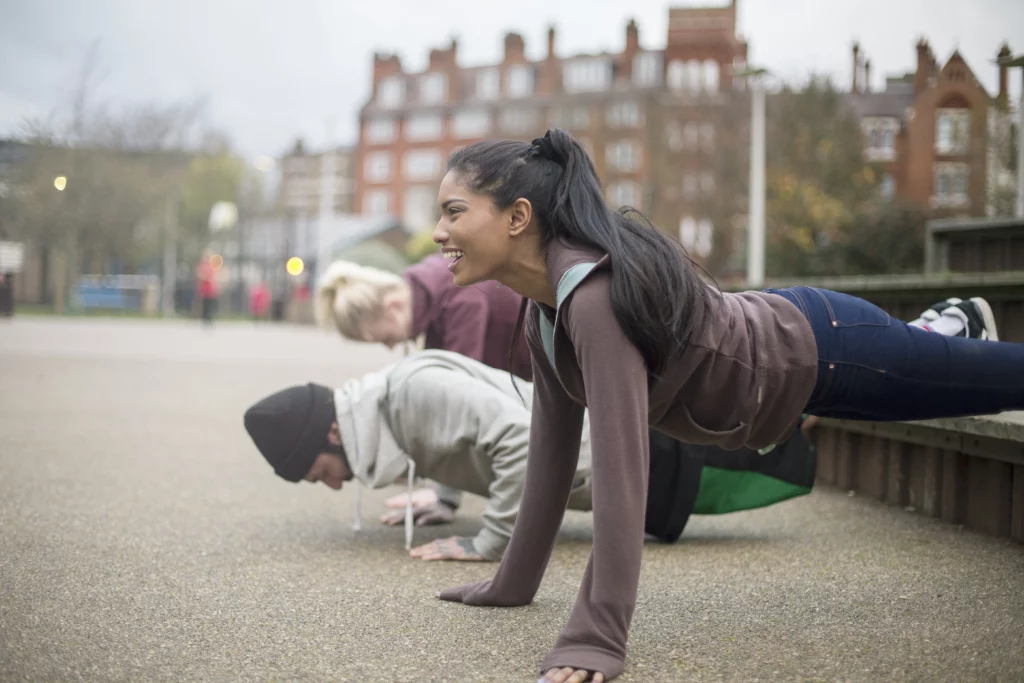No matter where you go—be it a bustling city gym in New York, a quiet park in Paris, a beach in Sydney, or a small backyard in Nairobi—you’ll find one fitness constant: push-ups. This classic bodyweight move has become a symbol of physical fitness worldwide. Truly, push-ups are the ultimate “around the world exercise” practiced by people of all ages, fitness levels, and cultures.
Why Are Push-Ups So Universal?
Push-ups require no equipment, just your body and a little space. That makes them accessible to anyone, anywhere. They also engage multiple muscle groups—chest, shoulders, triceps, core, and even the legs. This compound movement not only builds strength but also improves stability and cardiovascular endurance when done in higher reps.
In military training camps, school gym classes, fitness challenges, and professional sports routines, push-ups hold a permanent place. Their simplicity and effectiveness are why they remain the most practiced exercise around the world.
Benefits of Push-Ups
Here’s why this “around the world exercise” is so powerful:
- Full-Body Engagement
Push-ups activate muscles across your body, particularly the upper body and core. They help build lean muscle mass and improve posture. - Improved Cardiovascular Health
When performed in high repetitions or as part of a circuit, push-ups can increase your heart rate and improve cardiovascular endurance. - No Equipment Needed
Whether you’re traveling, at home, or outside, push-ups can be done anytime, anywhere—no gym membership required. - Functional Strength
Push-ups mimic natural body movements and build functional strength useful for daily activities and other exercises. - Scalable for All Levels
Beginners can modify push-ups by using their knees or doing them against a wall. Advanced athletes can elevate their feet, add claps, or try one-arm push-ups for added challenge.
Variations of Push-Ups Practiced Worldwide
Just like local cuisines have variations, so do push-ups. Here are some popular forms:
- Standard Push-Ups – The classic form practiced everywhere.
- Wide Push-Ups – Focuses more on the chest muscles.
- Diamond Push-Ups – Targets the triceps and inner chest.
- Incline/Decline Push-Ups – Adjusting the angle targets different muscle areas.
- Plyometric Push-Ups – Adds explosive power through clapping or hopping hands.
- One-Arm Push-Ups – A true test of strength and balance.
These variations help keep routines fresh and target muscles differently, ensuring continued progress.
Cultural and Global Impact
From the American military using push-ups as punishment and discipline, to Indian wrestlers performing hundreds daily as part of their traditional training, push-ups are ingrained in various cultures. Social media fitness challenges, like the “22 Push-Up Challenge” to support veterans, have also helped spread awareness globally.
Push-ups have become more than an exercise—they’re a symbol of dedication, resilience, and health across continents.
How to Get the Most Out of Your Push-Ups
To benefit fully from this around the world exercise, proper form is crucial:
- Keep your body in a straight line from head to heels.
- Engage your core to avoid sagging hips.
- Lower yourself until your chest nearly touches the ground.
- Push back up using your chest and triceps, not just your shoulders.
Consistency is key. Add push-ups to your daily routine or include them in a larger workout plan for best results.
Conclusion
Push-ups are more than just an exercise—they’re a global fitness tradition. Practiced by people from all walks of life, they represent strength, endurance, and accessibility. Whether you’re a beginner or a pro, integrating this “around the world exercise” into your fitness routine is a simple and effective way to stay strong and healthy, wherever you are.

